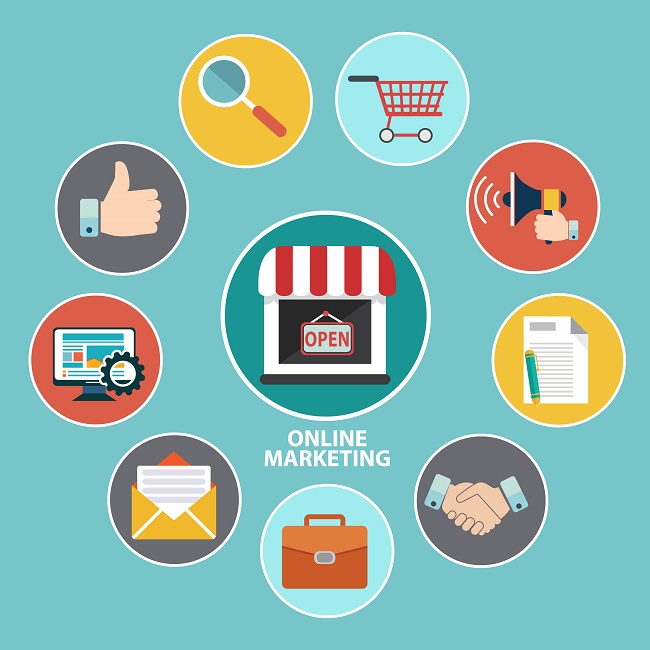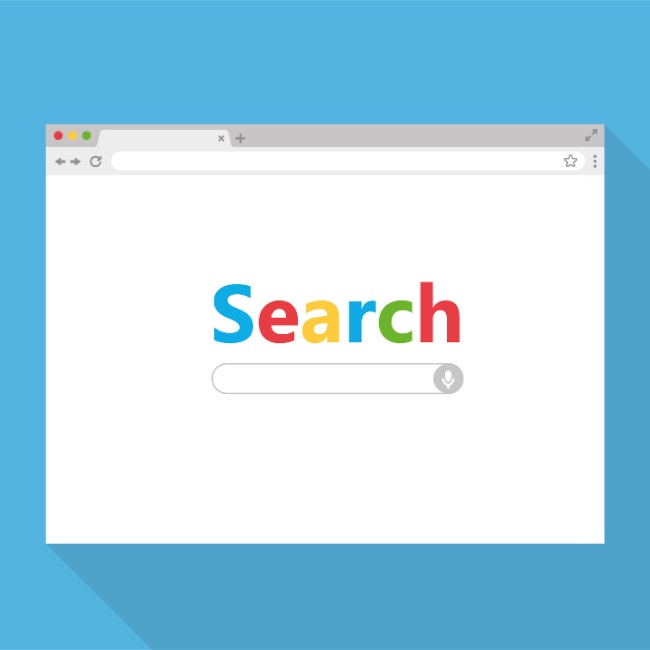Online Marketing
for Your Business
Use SEO, AISEO & PPC to get in front of potential customers & clients
A business website and an online presence are great an’ all, but what if no one sees what you have to offer? Will your business grow & develop or stagnate?
Online marketing (SEM), Artificial Intelligence marketing (AISEO, GEO, AISO, LLM optimisation) and advertising (PPC) help you get in front of people who are looking for what you’re offering.
People using Google or Bing search (or even AI) are focused on getting an answer to a question or buying from a business that can help: they’re actively searching for a solution to their problem. You are either attracting them because they’re looking for more information (through you publishing blog posts, white papers, or video content) or they know the type of business that can help them and are looking directly for your services or product.
When you advertise, in general, you are interrupting an individual’s time online, whether they’re on social media, browsing a news site (display ads), or watching something informative on YouTube. PPC also covers ads on search engine results pages, such as on Google.com, but the term PPC (Pay-Per-Click) covers all types of advertising online.
Below, we’ve included an overview of what each involves. Your business may benefit from one or both, or a combination of both, to adopt a holistic approach to your online marketing efforts in the digital world.

Search Engine Optimisation (SEO)
Search Engine Optimisation involves auditing your website and the links (votes) to it, and then adding more optimised content to your website and pointing more valuable links towards it. That’s fundamentally how Google and other search engines judge where to place your website in the search results.
Local SEO
If you serve your customers/clients in your local area, then you’re probably familiar with Google Business Profile (formerly GMB or commonly referred to as a Google Maps listing). Where you’re placed in the maps pack and how you’re represented in the pack for local keyword terms could be the difference between your business getting a lot of enquiries and you wondering if your contact form or telephone is broken.
We help you dominate Google and other search engines (yes, including AI) for the search terms you want to rank for. That means ranking different assets throughout the digital world for different keyword terms in the search engine results pages (SERPs). That could look like a social media post, a blog post, one of your service pages, a lead magnet page (which helps with email marketing), images that you have copyright for, or even a video.
SEO isn’t just about going on a marketplace and buying 100 links to be thrown at your website: that ship sailed over ten years ago. It’s about auditing what you have and then putting a plan in place to give search engines what they want, so people can discover what you have to offer and convert them into customers who make a purchase or reach out for help.
It could also be that you choose LinkedIn as your search engine or platform of choice, which is a smart choice if you’re a B2B business. LinkedIn is a different kettle of fish, but it can also be influenced.

Artificial Intelligence
Search Engine Optimisation (AISO/GEO)
You probably haven’t heard the term Generative Engine Optimisation, but you’ve probably heard of (and maybe used) large language models in the form of ChatGPT, Grok, Claude, Perplexity, or Google SGE. These are artificial intelligence models that have experienced significant growth in 2024 and 2025.
Note: GEO (Generative Engine Optimisation), AIO (Artificial Intelligence Optimisation), and AEO (Answer Engine Optimisation) are all terms for the same area: optimising your business and brand for AI platforms (essential Artificial Intelligence Search Engine Optimisation: AISEO). Yes, in a geeky world, there are fundamental differences, but in the business world, they all come under the same umbrella area.
There’s lots of potential customers and clients using services like ChatGPT for answers, or will be searching on Google, so Google’s AI (Gemini) summaries at the top of the results page (SERPs) become important.
Appearing in AI results when someone is searching for what you are offering is important. If you don’t focus on optimising for it, one of your competitors surely will: it’s a new technology that has a strong learning curve, similar to how SEO used to be back in the day, but it’s manageable.
There are also times when you want to appear in GEO results and other times when you might not want to. Sounds crazy, doesn’t it? LLMs (large language models) consume significant resources and can sometimes resemble a DDoS attack on a web hosting account. If you’re not selling services or products on your website, then you might not want to optimise for these.
How is GEO different to SEO? The bots for Google, Bing, etc, work a little differently from the ones used by the AI companies. However, optimising your digital assets for AI platforms is just a few tweaks on top of what we’d usually do for regular bots, with the added aspect of taking into account some accessibility aspects that fit nicely into the AI platform bots loving your website.

Advertising: Pay Per Click (PPC)
Advertising online can take a number of different forms, but the basics of it boil down to you paying for a person to click (or tap) on an ad and end up on a landing page or video about your products/services.
Ads can be used on cold audiences (those who don’t know you) or on warm audiences (people who know you or who have bought from you in the past). There are also numerous platforms, such as Google Search, Facebook and Instagram (Meta), LinkedIn (ideal for B2B), and YouTube, on which you can advertise.
Where we send people after they click/tap on the advert is also important. It could be a landing page with a lead magnet, a service page with a consultation form, a webinar or workshop signup page, a course page opt-in (for part of the course for free; test then buy), or it could even be to boost brand visibility of your social accounts.
Re-targeting ads are, by far, the most profitable. This is usually where someone has landed on your sales page and hasn’t bought what you were offering. There could be many reasons that could be solved through conversion optimisation, but one common reason is that they got distracted and never went back to what they were doing (making the purchase).
When you have the right target audience and a compelling offer, PPC can work like gangbusters to increase your revenue (and profitability) multiple times over.

Frequent Questions
SEO helps your business rank on Google and attracts people who need your assistance to solve their problem(s).
PPC advertises to people and interrupts their day. It’s still targeted at them, but every step needs to be compelling enough to move them to the next one.
In an ideal world, you’d want to use both.
PPC will get your business in front of potential clients/customers and people entering your sales pipeline quicker, but it will require some budget and testing in the initial phases.
SEO will most likely take longer to show clear signs of effectiveness (anywhere from 3 to 6 months), but it’ll provide a steady stream of traffic (and hopefully leads) for the keywords we are targeting. If we are working on local seo, then auditing and fixing issues with your maps listing and citations can give a good initial boost to phone calls and people reaching out.
You may also find that once we have developed a digital roadmap strategy together, other mediums or channels come up, for example, doing YouTube marketing: it’s still SEO, but the search engine is YouTube.
PPC: It could be a matter of days or even a week. It really depends on whether we have the correct avatar, targeting and offer for people. If your service or product is already proven and we’re able to use an advertising account you’ve used before that has conversions, then that makes it quicker.
If you don’t, it might take a few weeks before you see a noticeable impact on your numbers.
SEO: There will be initial quick wins we’ll see from the start, especially if we’re working on your business’s local SEO together. However, SEO and ranking for certain keywords on Google is a long-term strategy. It’s a profitable one in the longer term, but in the short term (3 to 6 months), patience is required as the search engine algorithms figure out where you should be placed amongst your competitors.
We offer strategy and implementation for most businesses. You’re good at managing your business, and we’re good at online marketing and advertising.
We’ll agree on everything after a comprehensive audit, and then proceed with implementing the strategy we’ve outlined. This strategy depends on your business, customer avatar, and the agreed-upon goals.
If you’re a larger organisation, then we can consult on an ongoing basis. We can advise your team and monitor results and progress. See this page for more information.
After we’ve completed our audit of your business presence in the digital world, we’ll put together a digital roadmap that sets out how we intend to grow the different elements of the KPIs for your business.
We’ll take an agreed-upon number of keywords and monitor your current rankings. We’ll also offer a best-guess estimate of the timeline it will take to rank for them and the number of increased visits you can expect to see in your analytics dashboard & reports from gaining those ranking spots.
We’ll complete an on-site review of your website, making any necessary changes to title tags, headings, content, images, URL slugs, and any other assets on your business website to optimise it for search engine rankings.
Then, we’ll go about working on the off-site elements in the digital roadmap, which could include citations, directory listing, press releases, media outreach, guest posts, and link building.
Both exist in harmony.
On-site changes are the foundation that should be started right away and developed over time (especially new, valuable content for end users).
Off-site changes come a little later after we check for any negative SEO elements or unfavourable links that might be pointing to your website. We’ll then follow our set-out digital roadmap to gain keyword rankings and increase the traffic to your landing pages.
Backlinks are built using a variety of techniques and tools.
All backlinks are built using commonly used white hat methods, and your website is treated as a key asset for your business. We might reach out to media sites and ask them to include you in a write-up of businesses in your industry or ask others to mention you when they’re writing (or speaking) about your business, services or products, or your industry in general.
We treat all link building as a vote for your website (as the search engines would), and understand that a vote from one website to the next differs in value depending on the quality of the site, its age, its trust from Google (quality score/ page rank), and its relevance.
Yes.
Our SEO service is holistic. We don’t just offer “link building” or “content for blogs”, but provide a complete package.
We’ll conduct a comprehensive audit of your business website and then review all the backlinks to it. Then, we’ll formulate a strategy to focus on the best keyword terms to rank for.
The content we provide will include any blog posts (or pages) that need to be added to the site, any content for media sources/sites to quote you or talk about your business, and any other material required to promote your business through search engine optimisation.
We specialise in Google Ads and Meta ads (Facebook & Instagram).
A lot of what we recommend to your business will depend on what is decided in your digital strategy document. It might be analysed that the best action is to advertise on Google Ads in search and in the Google Maps section (especially important if you’re targeting locally).
We might alternatively decide that advertising to a cold audience on Meta (Facebook, Instagram and audience networks) might work best for your target market. We might also suggest testing one or all of the above, such as network advertising, to see how they compare to advertising on the regular Facebook and Instagram platforms.
If we’re going with Google Ads, we have experience with using them on search as well as using retargeting ads across their network, as well as in video ads on YouTube.
We track conversions using the advertising platforms’ metrics and reporting tools, as well as Looker Studio (which integrates with Google Analytics and can also bring in data from other platforms).
We’ll also use any conversion analysis tools that are used on your business website’s CMS (content management system). For example, if you’re selling on Shopify, we’ll also use their system’s conversion data to compare against the data points on Looker Studio and others.
Through the years, we have come to understand that the only proper and accurate tools for analysing an advertising campaign’s effectiveness and accurate conversions are through sales, lead forms, or email sign-ups.
You’ll have access to all of the analysis tools that we’ll use, and we’ll provide you with either a weekly or monthly analysis report with spend, clicks, and conversions (among other data).
The central part of any advertising campaign is to ensure we have a well-defined target audience (customer avatar). One that we both understand exactly who your potential customers/clients are. If we have that, then the ad copy and creatives will be easier to see a positive impact on clicks and conversions.
We will A/B split-test different types of copy and creatives across various mediums and platforms, quickly removing the underperforming ones. Also, as long as the budget allows, we’ll test some out-of-field concepts to see if they resonate with your audience: sometimes we can hypothesise that A will happen, but if we introduce Q, then it could work so much better.
You will always retain control over your advertising account on whatever platform we use.
However, we ask that you trust us and allow us to manage the campaigns. We know that there are peaks and troughs throughout the month on specific networks and that sometimes Meta will overspend on the average when it sees that something could do well in front of your audience (it’s seeing conversions). We will monitor ad spend, clicks, and conversions, and act quickly if we see something strange.
We’ll manage the individual bids and stay within budget, even when it may seem that we’ll remain significantly under budget or exceed it greatly when examining one or two days’ worth of data.
This depends on a handful of things.
If your monthly ad spend budget is under £600, you will receive updates once a month. We’ll send you a report outlining what was carried out that month and explaining all the data.
If your monthly ad budget is over £600 per month, then we’ll agree a schedule together about how often we will update you with how the campaigns are progressing and what KPIs we are conquering.
We work on a retainer basis.
We have a flat management fee to manage all of the advertising campaigns, which includes ad copy, creatives, bid management, audience selection, A/B testing, landing pages, A/B testing for landing pages, automation sequences, and more.
We may also agree on a percentage of ad spend if your ad spending budget is over £3,000 per month.
Yes.
SEO: There is little point in us working on your website for SEO purposes and having a target of less than 6 months of continuous effort. This is because the foundations and on-site SEO changes may take 4 to 6 weeks to implement on your website. So, we need to commit to a minimum period of six months.
PPC: A minimum of three months for an advertising campaign makes sense. We can have a significant impact on your KPIs, allowing you to assess whether you want to continue working with us.
Overall, we’re interested in being your online marketing partner for years to come. To help your business grow now and into the future, and to be there to advise and help your business grow.
We won’t guarantee rankings for SEO because we’re at the behest of the search engine algorithms, and those can change each week. We follow white-hat practices, but updates may be made that are beyond our control and can affect keyword term positions.
Also, people are people and may not act the way we believe they will; that’s why we can’t guarantee any results from advertising campaigns other than our conservative estimates that you’ll most likely see.
The bottom line? We’ll work hard to ensure you’re happy with the ROI from our joint efforts to market and grow your business.
Have More Questions?
If you want some no-nonsense guidance and advice, then jump on a Power Hour call with Nick at Discover Web. He’ll provide you with genuine, honest advice, drawing on over 13 years of experience in the digital world.